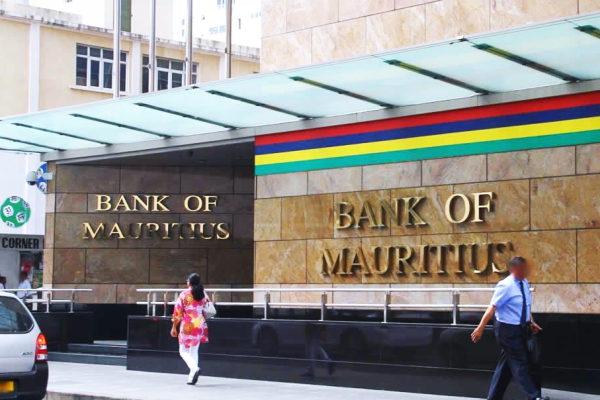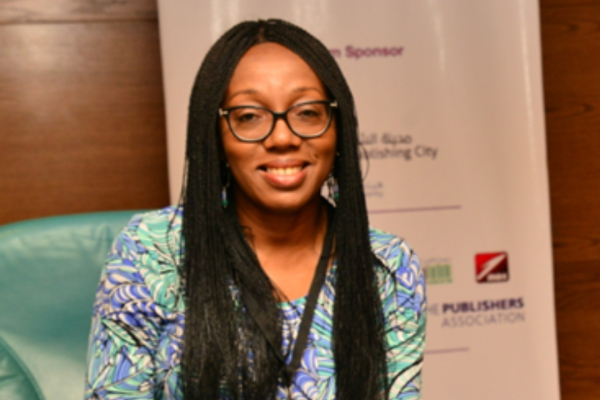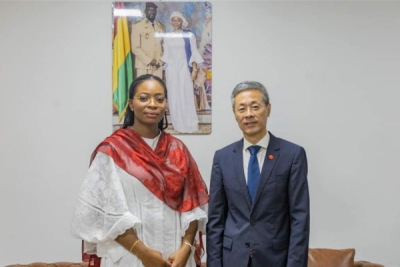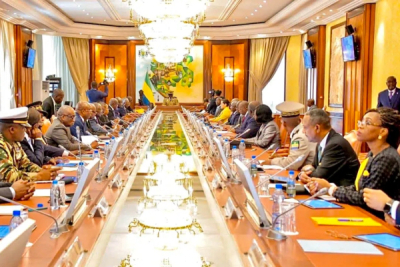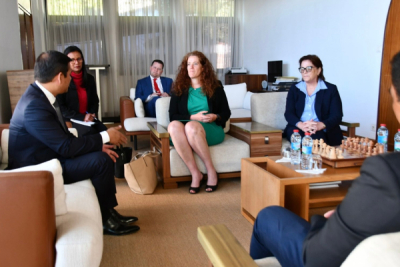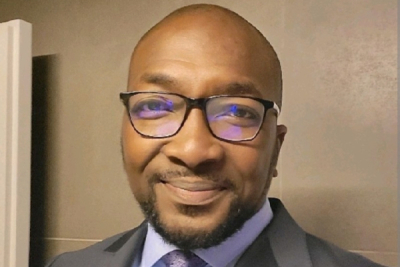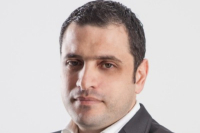At the forefront of the financial sector's digital transformation, the Bank of Mauritius has launched initiatives for years to make financial services more accessible and improve citizens' everyday lives.
The Bank of Mauritius, the central bank of the Republic of Mauritius, plans to open a fintech innovation center on September 4. The plan was unveiled by Harvesh Seegolam, Governor of the Bank of Mauritius, during the "Digital Finance in Africa" workshop organized on Thursday, June 20 by the Regional Centre of Excellence and the Organization for Economic Cooperation and Development (OECD). The goal is to facilitate brainstorming sessions, hackathons, and regional collaborations to address digital issues in Mauritius.
This decision comes at a time when fintech is increasingly dominating the financial sector in Africa. Traditional financial institutions, led by central banks, want to be included in this technological revolution affecting all sectors on the continent. The establishment of such a center by the Bank of Mauritius will promote innovation and the implementation of cutting-edge technologies in the country's banking sector.
According to the "Africa Tech Venture Capital" report published in January 2024 by Partech Africa, African fintech fundraising dropped by 56% to $852 million in 2023. Despite this significant decline, fintech remains the most capital-attractive segment on the continent due to its appeal. This attractiveness is partly due to the low banking penetration rate and the exclusion of the informal sector, which fosters the development of crypto assets on the continent.
The Bank of Mauritius confirmed through Harvesh Seegolam the commencement of the pilot phase of its digital currency implementation in January, following its launch in December 2023 with a commercial bank.
Adoni Conrad Quenum
In an effort to help her mother, who had become blind, continue enjoying African books and novels, she came up with a brilliant idea. She developed a digital platform that provides all reading enthusiasts with access to a vast collection of African audiobooks.
Ama Dadson (photo) is a Ghanaian computer scientist and tech innovator. She is the founder and CEO of AkooBooks Audio, a digital streaming platform dedicated to African audiobooks.
Established in 2018, AkooBooks Audio uses machine learning to connect African authors and voice talents with new readers and listeners. The platform offers audiobooks in several African languages, making literature accessible to both literate and non-literate Africans, as well as the global African diaspora.
The idea for AkooBooks Audio was born from Ama Dadson's desire to entertain her mother, a children's book author who had become blind. While searching for audiobooks for her mother, she quickly realized that most of them were foreign and not suited to her mother's tastes.
"All the book titles I found for my mother had nothing to do with Africa. Yet, she wanted to immerse herself back in the atmosphere and imagination of our continent. So, I realized that there was a lack of essential content, adapted to our needs. This is how AkooBooks was born in 2018. Our continent is immense, we have so many talented authors and publishers. The field is vast and I took the plunge," explains Ama Dadson in 2023.
Ama Dadson graduated from the Kwame Nkrumah University of Science and Technology with a bachelor's degree in computer science in 1986. She was also certified as an IT business manager in 2014 by the IT Manager Institute, created by the IT management training company, MDE Enterprises.
Following her studies, she worked as a regional computer trainer for the United States Agency for International Development (USAID) from 1991 to 1996. Between 2005 and 2022, she held various positions at the University of Ghana, including Deputy Director of IT Services and Head of IT Service Delivery.
In 2018, Ama Dadson received the African Entrepreneurship Award in the "High Potential" category from BMCE Bank of Africa. In 2021, her startup won the Startup of the Year award at the Women in Tech Africa Awards. In 2023, she won the AFD Digital Challenge Africa, organized by the French Development Agency.
Melchior Koba
On Friday, June 21, Rose Pola Pricemou, Guinea's Minister of Posts, Telecommunications, and the Digital Economy, met with His Excellency Huang Wei, the Ambassador of the People's Republic of China to Guinea. The meeting provided an opportunity for both parties to discuss potential collaborations and partnerships in the digital sector aimed at advancing Guinea's development.
Gabon's transitional government is injecting fresh momentum into the country's development by prioritizing digital transformation. This modernization drive seeks the backing of key financial institutions, including the World Bank.
Gabon aims to make significant progress in digital projects this year. On Thursday, June 20, the Council of Ministers adopted a draft law authorizing the Gabonese state to borrow €56.2 million from the International Bank for Reconstruction and Development (IBRD), a World Bank entity. This initiative is intended to fund the project titled "Gabon Digital."
According to the final communiqué from the Council of Ministers, this funding will catalyze the adoption of digitized public services and increase the number of citizens with a unique identifier. This identifier is crucial for facilitating inclusive access to various public services, thereby contributing to administrative efficiency and improving the quality of life for Gabonese citizens.
"Gabon Digital" will receive a total of $68.5 million in funding from the World Bank. It comprises several major components, including creating an environment conducive to rapid digital transformation, modernizing legal identity systems, and digitizing public administration and essential services.
This initiative is part of the transitional government's strategy to make the digital economy a strategic lever for economic and social growth. To this end, several priority projects have been reactivated, including the construction of a national data center, the development of a Cybercity on Mandji Island, and the digitization of key sectors of the country.
The support from the World Bank is expected to help the country realize these ambitious projects. The planned investments are likely to foster innovation, stimulate the creation of skilled jobs, and enhance the country's competitiveness on the international stage. According to a recently published report by the International Telecommunication Union (ITU), titled "Measuring Digital Development: The ICT Development Index 2023," Gabon ranks as the most developed country in ICT in the Central Africa sub-region and holds the 10th place in Africa with a score of 72.9 out of 100 points.
Samira Njoya
During her visit to Madagascar, Jennifer Bachus, Principal Deputy Assistant Secretary of the U.S. Bureau of Cyberspace and Digital Policy, met with a Malagasy delegation led by Tahina Razafindramalo, Minister of Digital Development, Posts, and Telecommunications, on Thursday, June 20. The primary objective of this meeting was to promote a safe and secure cyberspace, enhance Madagascar's digital resilience, and support local initiatives for digital transformation.
A seasoned tech entrepreneur, he specializes in creating innovative solutions to help businesses smoothly complet their digital transformation. He has already worked on hundreds of projects, consistently delivering satisfaction to numerous clients.
Mohamed Sounkere (photo) is an Ivorian tech entrepreneur and an expert in cybersecurity, cloud, and open source technologies, and an Ivorian tech entrepreneur. He is the co-founder and CEO of Veone, a startup that aims to make open source technologies and solutions accessible to businesses.
Founded in 2010, Veone is committed to providing innovative and high-quality IT solutions, leveraging its expertise in software development, integration of open source technologies, and cloud services. The company's stated mission is "to become the trusted partner for businesses, helping them navigate an ever-evolving digital landscape while optimizing their performance and efficiency.”
Veone's expertise spans various technological domains, including application development, big data, enterprise management, artificial intelligence, and automation. Its areas of operation include healthcare, telecommunications, transport and logistics, education, infrastructure, the public sector, and banking and insurance.
To date, the startup has completed over 1,500 projects and mastered more than 500 technologies. Among its flagship innovations are AssurLink and CentralBill. AssurLink is an all-in-one solution designed to optimize all business processes for insurance firms. CentralBill, on the other hand, is designed to modernize and simplify payment and collection processes for large companies and public institutions. This solution received the award for Best Digital Innovation at the 2024 Digital Transformation Awards.
Mohamed Sounkere graduated from Groupe Loko in 2002 with a Higher Technical Certificate (BTS) in Mathematics and Computer Science. In 2005, he earned a degree in Computer Science from Agitel Formation.
His professional career began in 2005 at CIMARKET, an electronic payment startup, where he was an IT security specialist and IT manager. In 2008, he joined Talentys SA, a company specializing in IT security and networks, as a senior technical project manager, working there until 2011.
Melchior Koba
He aims to bring businesses closer to their customers and improve their performance. To achieve this, he is developing a series of technological tools designed to optimize these interactions between the two parties.
Achraf Gabsi (photo) is the founder and CEO of Go Mybiz, a technology startup specializing in providing IT solutions. Originally from Tunisia, Gabsi created this company to strengthen the relationships between businesses and their clients.
Founded in 2020, Go Mybiz offers a suite of customer relationship management (CRM) software, enabling businesses to fully digitize their customer journey. The startup has already developed three key software solutions: Go Voice, Go Contact, and Go Sales.
Go Voice is an advanced business telephony solution offering a wide range of essential features, including an interactive voice response (IVR) system, personalized messages for business hours and queues, detailed statistics, and computer-telephony integration (CTI).
Go Contact is designed for commercial and marketing departments. It helps manage customer service, conduct prospecting campaigns and appointment setting, perform satisfaction surveys, and handle debt collection.
Go Sales is a sales force management tool that provides detailed tracking of opportunities, quotes, and tasks through a configurable sales cycle tailored to the company's internal processes.
In addition to leading Go Mybiz, Achraf Gabsi is a member and secretary-general of TunisianStartups. He also serves as vice-president of the Confederation of Tunisian Citizen Enterprises (CONECT), an innovative organization representing businesses of all sizes across the country.
Achraf Gabsi graduated from the Institute of Higher Commercial Studies of Carthage with a specialized graduate diploma (DESS) in Information Technology and E-commerce in 2002. His career began the same year at Tunisie Voyages, where he was responsible for new information and communication technologies (ICT).
In 2007, he joined Satec, a digital solutions integrator, as a senior account manager for government projects. From 2012 to 2020, he worked at Smarthost, a technology company providing cloud services for SMEs, large enterprises, and government organizations, where he held positions as sales director and CEO.
Melchior Koba
After investing in several startups across the continent, the venture capital fund Breega has decided to set up a fund specifically dedicated to Africa.
Paris-based venture capital fund Breega has announced the closing of a $75 million fund dedicated to Africa, named "Africa Seed I." The fund aims to invest between $100,000 and $2 million in early-stage startups across the continent, targeting at least 40 investments.
“Reflecting on my experience, I struggled to find African investors who had built businesses without raising money. That’s why our goal is to be the investors we wished we had while building our businesses. Many entrepreneurs value having a sparring partner who has been there and done that before," Melvyn Lubega (photo, right), one of the leaders of Breega Africa, told TechCrunch.
The closing comes at a time when African startups are raising less capital. According to Partech Africa, African startups raised $2.3 billion in equity in 2023, a 54% decline compared to 2022. This downward trend continued into 2024, as highlighted by Africa: The Big Deal, a database tracking investments over $100,000 in African startups. It reported that African startups raised $466 million in the first quarter of this year.
Africa Seed I will focus on four major African markets: Nigeria, Egypt, South Africa, and Kenya, as well as Francophone African markets including Morocco, Senegal, Côte d'Ivoire, Cameroon, and the DRC. Breega has previously supported several African startups, including Numida, Hohm Energy, Socium, Klasha, Kwara, Coachbit, and Sava.
Adoni Conrad Quenum
The name of the startup means "quickly" in Lingala, a widely spoken language in Congo. Its goal is to redefine delivery standards in Africa.
Noki Noki is a digital solution developed by a Congolese startup that allows users to have their parcels delivered via its mobile application. The startup, based in Brazzaville, was founded in 2021 by Jonathan Yanghat. On Thursday, June 13, it raised $3 million to expand its distribution network, enhance its service offerings, and strengthen its presence in new markets.
"I founded Noki Noki in 2021, driven by a deep belief in the power of African innovation, particularly in Congo-Brazzaville. We started the venture with a few motorbikes and a clear ambition: to revolutionize delivery and e-commerce on the continent. This funding round brings us closer to our goal of becoming a reference in local delivery in Africa," said Jonathan Yanghat.
The solution features a mobile application available on iOS and Android, with over a thousand downloads. After downloading, users create an account with their personal information, giving them access to the startup's various services.
Among these services, Noki Noki has deployed Noki Food for ordering food from local restaurants; Noki Noki Enterprises to meet the logistical needs of businesses, ensuring the safe transportation of parcels and goods from point A to point B; and Noki Noki Shopping for performing various errands, such as delivering pre-ordered items, dry-cleaned clothes, and more.
The startup operates in six countries and eight cities, including Brazzaville and Pointe-Noire in Congo, Dakar in Senegal, Abidjan in Côte d’Ivoire, and Libreville in Gabon. With average delivery times of 10-15 minutes in city centers and 20-30 minutes outside city centers, Noki Noki offers a viable alternative for e-commerce platforms typically facing delivery challenges.
The Congolese startup boasts over 10,000 users, more than 5,000 satisfied clients, and over 200 business partners. In 2022, it won the best startup award at the International Tech and Innovation Fair of Central Africa (Osiane) and joined the TotalEnergies incubator in Pointe-Noire in 2024, following the Startupper Challenge.
Adoni Conrad Quenum
He gained extensive experience in digital marketing by working for several companies in Canada. As an entrepreneur over the past few years, he has simplified the process of exchanging second-hand clothing between buyers and sellers.
Salim Ammara (photo is an Algerian tech entrepreneur. He is the founder and CEO of Dirideal, an e-commerce platform specializing in second-hand clothing. Launched in 2022, Dirideal makes buying and selling clothes from home easy.
The platform created a true circular community with a paperless door-to-door delivery service and an integrated digital wallet. Acting as an intermediary between sellers and buyers, a courier picks up packages from sellers and delivers them to buyers across Algeria. It already boasts 150,000 active users nationwide, offers 17,000 items, and registers 700 new members daily.
In addition to his role at Dirideal, Salim Ammara is also a part-time marketing director for startup companies. His expertise includes analyzing buying behaviors, developing brand images, and optimizing sales promotions to improve profitability and market position.
He holds a marketing degree from the University of Sherbrooke, Quebec, where he earned a bachelor's degree in marketing in 2014. His professional career began in 2013 at Ludis Media in Sherbrooke as a digital marketing strategist. In 2015, he joined SherWeb, a Quebec-based cloud distributor, as a marketing strategist.
In 2018, Salim joined Datavalet Technologies, a Canadian software company, as digital marketing director. The following year, he became a marketing automation consultant at Incloud Business Solutions. Concurrently, he taught digital marketing at the Montreal College of Information Technology. From 2020 to 2021, he served as marketing manager at Bopper, a company helping artists obtain licenses.
With his rich and diverse background, Salim Ammara continues to make significant contributions to technological innovation and the development of e-commerce in Algeria.
Melchior Koba
More...
The Ivorian government is continuing the implementation of its digital development strategy for 2025. The digitization of all public services stands as a fundamental pillar of this policy.
Côte d'Ivoire's digital transformation took a leap forward on Tuesday with the launch of four digital platforms designed to streamline operations across key government ministries.
The new platforms, DOB-connect, the Hospital Information System (SIH), E-Tribcom, and Trésor-PAY-Trésor-Money, aim to enhance service delivery and transparency in education, healthcare, justice, and finance.
DOB-connect, geared towards the Ministry of National Education and Literacy, provides a digital tool for tracking student performance and tackling academic failure. The Ministry of Health received the SIH, which will improve patient care by connecting over 160 healthcare facilities.
The E-Tribcom platform streamlines judicial operations, commercial registry management, and secure transactions for the Ministry of Justice and Human Rights. Finally, the Ministry of Finance and Budget received Trésor-PAY-Trésor-Money, facilitating state expenditure management and electronic revenue collection.
The launch aligns with the Governance Improvement Project for the Delivery of Basic Services to Citizens (PAGDS), an initiative within the National Digital Development Strategy 2021-2025. This World Bank-supported strategy encompasses 32 reforms and a substantial investment of 2,000 billion CFA francs (around $3.3 billion).
The Ivorian government anticipates this digital transformation to boost GDP by 6-7 percentage points and generate between 2,000 and 3,500 billion CFA francs. The World Bank further highlights the potential of the digital economy, estimating it could contribute over $5.5 billion to Côte d'Ivoire by 2025 and exceed $20 billion by 2050, contingent on continued investments in key digital infrastructure.
Samira Njoya
In Africa, access to electricity remains a major challenge, significantly hindering economic and social development. The initiatives by Orange and its partners are contributing to addressing this challenge in a sustainable manner.
Orange Smart Energies, a specialized digital platform by the telecom operator Orange, is now open to all energy producers in Africa. This pay-as-you-go solution, combined with Orange Money, allows them to manage the prepaid electricity provided to populations through their solar kits and smart meters. This initiative will significantly enhance energy inclusion in Africa.
"Using digital technology to improve the energy inclusion of African people has been our ambition since day one. By opening up our Orange Smart Energies platform to all energy producers, we are taking a major step forward in our commitment to universal access to energy in Africa and the Middle East," said Jérôme Hénique, CEO of Orange Middle East and Africa (OMEA).
In its "Electricity 2024: Analysis and Forecast to 2026" report, the International Energy Agency (IEA) indicated that 600 million people, primarily in sub-Saharan Africa, lacked access to electricity in 2023, accounting for over 40% of Africa's population. Off-grid gasoline or diesel generators have become a common solution for accessing electricity on the continent due to their low initial costs compared to grid connection. However, their operating costs have significantly increased, particularly since 2021, following the surge in oil prices.
On the other hand, since 2015, the adoption of modular decentralized home solar systems (SHS) has steadily increased, according to the IEA. "Countries like Ghana and Kenya have multiplied their SHS capacity more than twentyfold between 2015 and 2019. SHS providers have enabled the implementation of the system through financial incentives such as a pay-as-you-go business model," notes the International Energy Agency.
Given this context, the Orange Smart Energies platform — operational in 12 African countries with over 300,000 households benefiting from its services daily — positions itself as a valuable asset for the French telecom operator in the fight against energy poverty in Africa. In addition to facilitating access to energy for remote populations, it also addresses the profitability challenges of energy producers by reducing the risk of non-payment.
Orange wants to connect one million households to solar energy by 2026. Furthermore, the company covers a dual advantage. The connection between Orange Smart Energies and Orange Money allows it to further monetize its mobile finance service, while also promoting internet usage, a strong revenue segment for Orange, through increased access to electricity.
A finance expert, she leverages technology to create solutions tailored to the financial needs of SMEs and rural populations. Her commitment to combating financial exclusion has earned her numerous awards and distinctions.
Ethel Mupambwa (photo) is the founder and CEO of fintech startup MoneyMart Finance. Born in Zimbabwe, she is driven by the ambition to ensure financial inclusion for all her fellow citizens through her startup.
Founded in 2014, MoneyMart Finance is dedicated to fostering universal positive transformation by providing access to digital financial services. The company offers loans tailored to the activities of informal businesses and small and medium-sized enterprises (SMEs). It also provides micro-insurance solutions for individuals, including funeral financing plans.
MoneyMart Finance tackles various forms of exclusion that contribute to poverty, including energy exclusion. The company is also a distributor of off-grid solar systems, serving families and small businesses needing reliable, sustainable, and clean energy.
Since its inception, MoneyMart Finance has served over 6,000 microenterprises and disbursed more than $5 million in loans. Additionally, it has financed over 1,300 solar systems. Reflecting a development policy focused on empowering women and youth, 70% of its clients are women and 50% are young people.
Ethel Mupambwa serves on the board of directors of the Zimbabwe Association of Microfinance Institutions (ZAMFI). She is also a founding trustee of the Digital Finance Practitioners Association of Zimbabwe (DFPAZ). She holds a bachelor's degree in finance from the National University of Science and Technology of Zimbabwe, earned in 2008. Her professional career began in 2006 as an intern at EY. From 2009 to 2011, she was the financial director of Rockshade Car Rentals and Tours, a luxury car and coach rental service provider.
In 2020, she won the WIA54 (Women in Africa) award in the fintech category and was named among Africa’s Business Heroes. The following year, she was recognized as Businesswoman of the Year by the Zimbabwe National Business & Leadership Awards. The same year, she received an honorary doctorate in human letters from the Women’s Institute of Philanthropy (WIP) and another in business leadership and entrepreneurship from the International Women’s University (IWU).
Melchior Koba
By creating a hub that attracts regional entrepreneurs, governments can drive technological innovation across Africa, fostering a collaborative ecosystem that benefits the entire region.The project will create numerous jobs and opportunities for skills development in technology, business process outsourcing, and related fields, contributing to workforce empowerment and economic stability.
Sierra Leone is dedicating $150 million to a cutting-edge Tech City hub in Tikonko, Bo District, to transform the nation into a digital innovation powerhouse. Announced at the Orange-sponsored Sierra Leone Innovates Tech Summit (11-13 June 2024), the hub will offer facilities to incubate and accelerate programs, supporting the transition of start-ups from ideation to commercialization.
Speaking on the matter, President Bio said: “The City will foster the development of new technologies, products, and services that will serve as catalysts for sustainable development, promote economic diversification and reduce the country’s over reliance on the traditional sectors.”
The Tech City, set in a 130-acre economic zone, marks a significant step in Sierra Leone’s digital transformation efforts. Technology Minister Salima Bah, who spearheads the project, envisions the hub as a catalyst for the country’s technological advancement.
Key telecom operators Africell and Orange Sierra Leone are supporting the project, with Africell planning to establish an on-site data center, as confirmed by a memorandum of understanding (MoU) signed during the summit. The Ministry of Communication, Technology, and Innovation announced today, via their Facebook page, the signing of an MoU with Orange. This agreement paves the way for the construction of the "Orange Village" community project within the Tech and Innovation City.
The Tech City is designed to generate jobs, with new opportunities in business process outsourcing and device assembly. This multifaceted strategy aims to boost Sierra Leone’s tech capabilities and solidify its role in West Africa’s innovation landscape.
The investment comes at a crucial time as African nations increasingly leverage digital solutions to spur economic and social progress. Sierra Leone’s bold move could set a precedent, demonstrating that smaller nations can significantly impact the digital stage.
The government has been actively seeking ways to drive economic development through the combined forces of entrepreneurship, innovation, and technology. Initiatives include the Sierra Leone Medium Term National Development Plan (2019-2023), the National Digital and Innovation Strategy, and the establishment of Small and Medium Enterprises (SME) development agencies, among others.
A study by the African Development Bank (AfDB) highlights that nations with diversified economies are more resilient to global economic shocks. Sierra Leone’s investment in Tech City supports this diversification, enhancing economic resilience and creating a sustainable growth model.
Hikmatu Bilali


